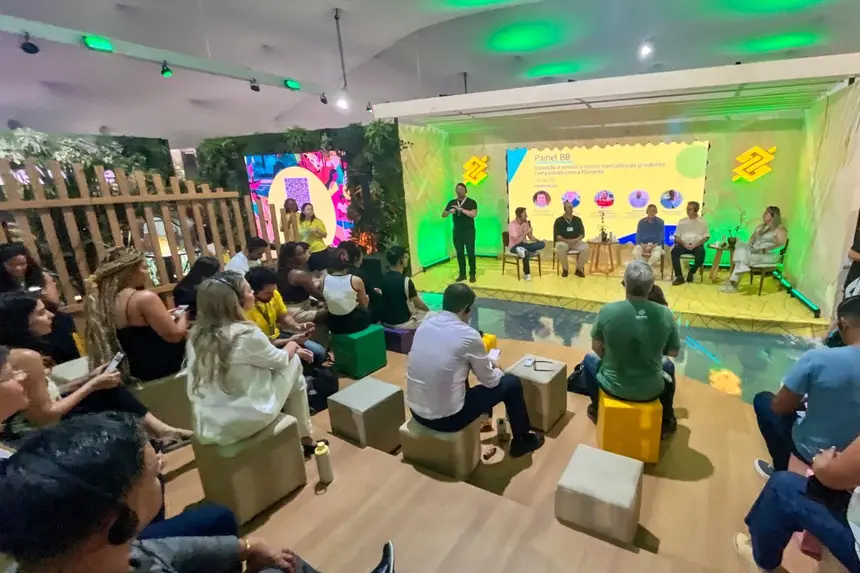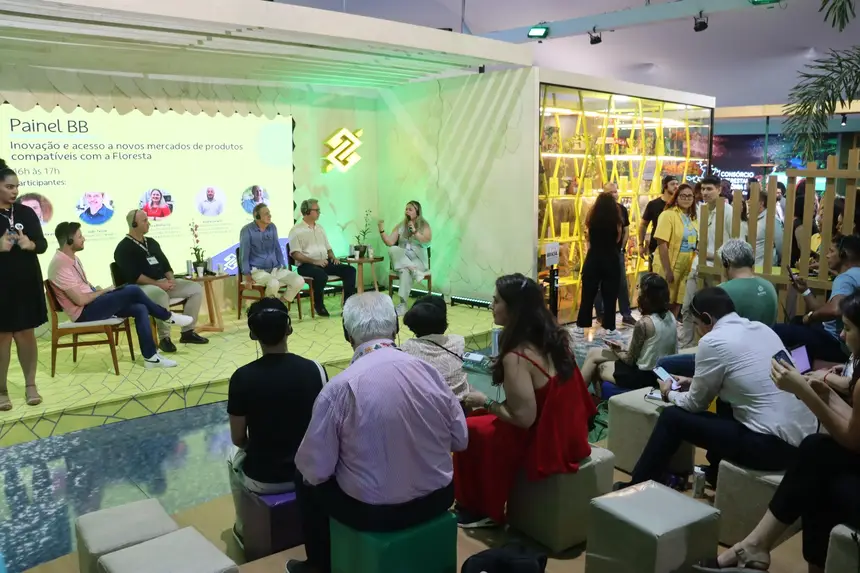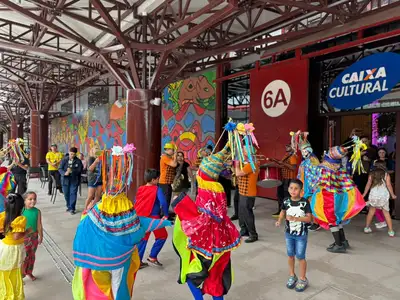At COP30, Pará advocates innovation as the engine of the bioeconomy and the creation of sustainable markets
The government reinforced its strategy to consolidate the bioeconomy as a vector for sustainable development and income generation

The State Government, through the State Secretariat for Environment, Climate and Sustainability (Semas), highlighted on Tuesday (11), at the Banco do Brasil booth in the Green Zone of COP30, actions that unite technology, traditional knowledge, and opportunities for the forest peoples.
During the panel "Innovation and access to new markets for forest-compatible products," the government reinforced its strategy to consolidate the bioeconomy as a vector for sustainable development and income generation. The coordinator of Bionegocios at the Secretariat of Bioeconomy (Sabio), Jéssica Brilhante, highlighted how the combination of innovation, belonging, and appreciation of traditional knowledge is transforming the relationship of communities with the forest.
“Pará is building the path of sociobioeconomics, based on concrete opportunities for the forest peoples. This is a transition that does not happen overnight, but requires time, qualification, and structure. We have been working so that the populations that have always lived from the forest can now live with the forest, sustainably and with income generation,” said the coordinator.
Transforming and developing the territory
The state has been strengthening public policies that provide direct support for sustainable production, such as the Bioeconomy Park and Inova Sociobio. These initiatives focus on technical and entrepreneurial training, local processing, and access to credit and grants—essential elements to transform the productive base of the territories.
“For a long time, many communities did not feel part of this process. Today, there is a new sense of belonging. People are beginning to see that their forest products have market value, that they can provide food, cosmetics, and sustainable inputs, and not just sell raw materials. This is the step that changes the economic logic of the forest,” highlighted Jéssica.
Social technologies – impacts on the transformation of community production
The work developed by the state, through Semas, has been adapting the reality of Pará, the region, the forest peoples, and their knowledge to a process of technological and technical insertion to promote inclusion, sustainability, and improvements in the living conditions of these people. Jessica Brilhante recalled the case of a tucumã producer who took ten days to dry the fruit manually, but with the support of students, managed to reduce the drying time to just three days through a handmade greenhouse made with styrofoam, light bulbs, and simple sensors.
“This is innovation applied to the local reality. These are simple technologies that optimize processes and increase productivity without compromising environmental balance. This woman, who previously produced little and with great effort, can now deliver more and access new markets. Technology, when it arrives with respect for traditional knowledge, transforms lives,” she emphasized.
Jéssica also reminded that innovation is not limited to equipment or software, but also involves the appreciation of ancestral knowledge and the exchange between generations.
“Everything starts with local knowledge. The woman from the community knew how to dry the tucumã, and the students just improved the process. It was traditional knowledge that enabled the innovation. This is what we want to foster: the integration between science, youth, and popular knowledge,” she stated.
Transition and development - With a focus on sustainability and the generation of local opportunities, the State Government reinforces that the bioeconomy is a key piece in the transition to a new development model, based on conservation, the appreciation of biodiversity, and the permanence of populations in the forest.
“Innovation comes to optimize and strengthen traditional knowledge. The goal is to create an economy that is sustainable, fair, and connected to the future of our territory. The standing forest needs to be the center of development,” concluded Jéssica.
Pará's presence at COP30, with panels like this in the Green Zone, highlights the state's commitment to promoting a global dialogue on ecological transition and the strategic role of the Amazon in this process. In this context, green financing mechanisms and public-private partnerships become fundamental to expand investments in innovation, research, and infrastructure, consolidating the bioeconomy as a driver of sustainable and inclusive development in the region.
Text Lucas Maciel/ Ascom Semas










